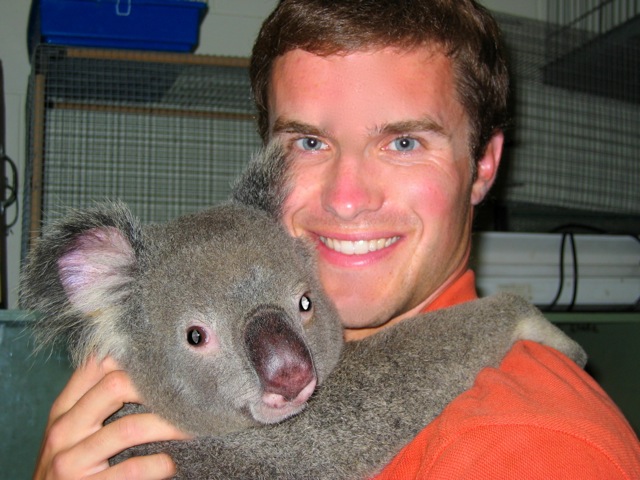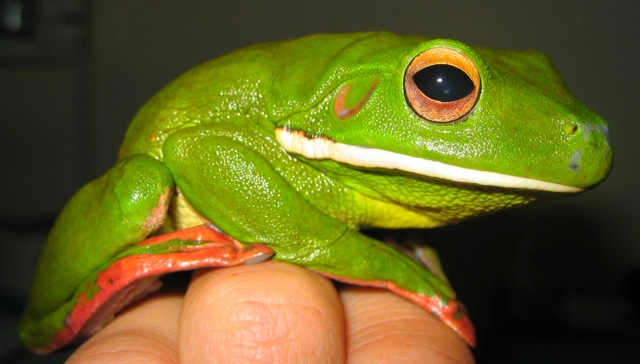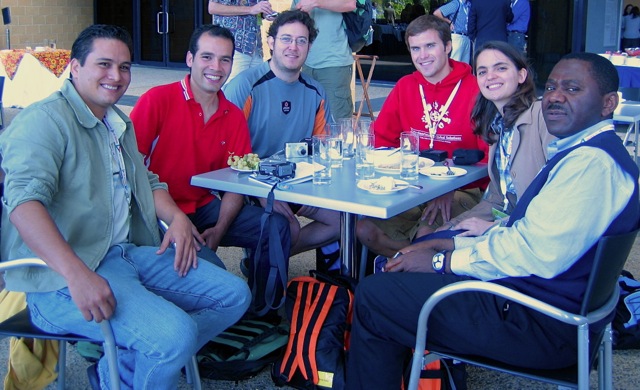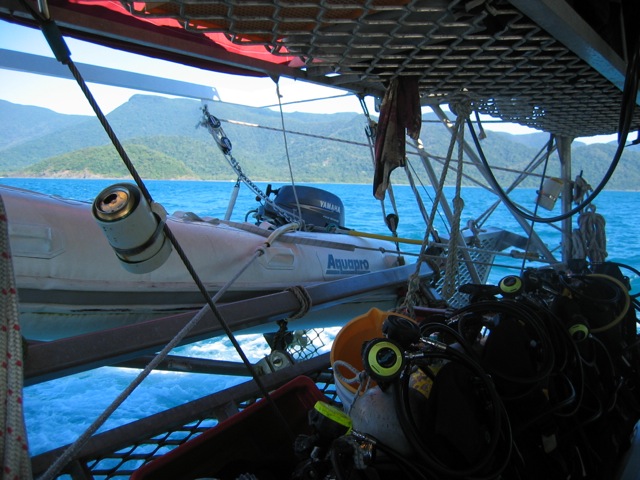Conference Travel Funding: ISVEE Australia

 “You know, you should really think about trying to get to next summer’s ISVEE conference,” suggested one of my professors after class during the fall of my second year of vet school.
“You know, you should really think about trying to get to next summer’s ISVEE conference,” suggested one of my professors after class during the fall of my second year of vet school.
“ISVEE, I don’t think I’ve heard of it,” I responded.
“It’s the International Society for Veterinary Epidemiology and Economics. Basically, a bunch of vets from around the world who are doing exactly the type of work you’re hoping to get into. Plus, next year’s conference is in Australia, so that would be an added bonus!”
I had to agree, and the seed was planted.
Clearly, I needed to be there. I quickly learned that this conference only happens once every three years, so this would be my only opportunity to attend while in vet school.
But how was I going to pay for a plane ticket to Australia and a somewhat pricey conference registration fee? I knew that I would find some place to sleep for free or very cheap, so that wouldn’t be an issue at least. Have you heard of Couchsurfing.org? I’ve had some amazing experiences through that community that I’ll share about at some point.
Unfortunately, it’s pretty tough to find scholarships or other types of funding for conferences at which you are not presenting or playing any other important role. However, I was willing to try anything. How could I transform this into a fundable experience?
I learned that there were several workshops being held before and after the conference itself. One of them was titled, “The Role of Veterinary Epidemiologists in Ecosystem Health.” Wow! That sounded perfect. It also would give me a little bit more of a legitimate role to present to potential funding sources. I wasn’t just attending a conference. I was a workshop participant. Sure, this also added a few hundred dollars to my needed budget, but if it was my ticket to the whole trip then that was definitely worth it.
After lots of unsuccessful Google searches and a couple of denied applications for not-exactly-relevant research funding, I came across a unique conference travel grant program through the Tufts Institute of the Environment (TIE). How had I not known about this before? And why was it not being advertised to veterinary students? The TIE is an initiative that brings students and faculty together from across the university to encourage and facilitate research and engagement on issues related to environmental sustainability and conservation.
Now I know most of you don’t go to Tufts, so you wouldn’t be eligible for this particular grant, but believe me when I tell you that there are funding sources like this hidden away at all of your universities! It’s just a matter of talking to the right people and doing your own investigative digging.
It’s natural for us as vet students to think that we are confined to funding and experiences through our veterinary school or department, but in reality almost all vet schools are part of big universities with biology, environmental, medical, and public health programs. All of these places are also potential sources of really good connections, experience, and funding. You just need to be willing to draw outside the lines a bit, and you’ll be surprised at the opportunities that come your way.
So anyway, that’s how I ended up securing my ticket to Cairns.
The workshop and conference themselves were amazing. It was definitely one of the best networking experiences I’ve had, and I ended up utilizing several connections I made there to build into other experiences down the road.
Although I’m naturally a fairly reserved person, I can play the networking game with the best of them, and I’ve learned to really enjoy that somewhat cheesy conference happy hour even if I don’t know anyone going into it. After I get over my initial reservations, I always end up having a great time learning about other people’s lives and work. The trick is just to keep asking questions!
Dr. Ali was standing by himself at one such event, and I got up the courage to head over and speak to him. In ten minutes of conversation, I learned that he was a veterinarian and epidemiologist from Somalia who was involved with some really cool projects at the interface of wildlife, livestock, and agricultural development. He gave me his card when we parted ways, and I followed up with an e-mail a few weeks later. Here’s an excerpt from his response:
“Thank you for your contact, I am fine, returned back to work soon after ISVEE, now for the last two weeks I am in engaged in wildlife capture and sampling especially warthog in southern Somalia near the Kenyan border. It was a very interesting activity, as warthogs transmit various diseases to the livestock. I hope we meet again one day, you are most welcome to visit us and join our activities in Africa in general, and East Africa especially where we operate now.”
I didn’t end up taking him up on his offer to join him in studying warthog diseases in Somalia, but I could have, thanks to that little bit of networking initiative on my part. Yes, it’s scary. And no, it doesn’t always result in an awesome offer of collaboration like this one.
But more often than not, it can turn into whatever you want to make of it. I’ve found that veterinarians in general are a pretty friendly crowd, and even though they may seem way out of your league they are more than likely willing to lend a helping hand to someone like you or me who is just getting started.
Along with Dr. Ali, I made great connections with a bunch of other veterinarians doing various versions of my dream job. David Waltner-Toews, Colleen Duncan, and Louis van Schalkwyk were just a few of the vets I got to know. They were joined by a Kiwi vet studying Tasmanian Devils, a Portuguese vet studying mosquito-borne diseases in East Africa, and many many more.
Sure, the presentations and conference events were informative, but the greater benefits to me were in the dinners, conversations over beers, diving on the Great Barrier Reef, and hiking through the rainforest with some of my new colleagues and friends.
I’ll leave you with a couple of take-home messages.
First, you have to be willing to pursue your dreams outside of the typical confines of your pre-vet club, vet school, or current job as a veterinarian. There are an unlimited number of opportunities out there for the taking, but it takes some initiative to really make it happen.
Second, don’t underestimate the importance of relationships in pursuing your goals. The connections you make with fellow travelers on this great path of life are what will carry you forward and out into the deep ocean of opportunity. Fortunately it’s pretty easy to make these connections: all it takes is a friendly e-mail, phone call, or even better, personal “Hello!” at a cheesy conference happy hour.
Finally, don’t forget to comment here with any questions or suggestions. I’m here to help you find your own way into cool experiences like this one.




Comments